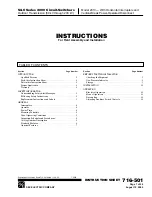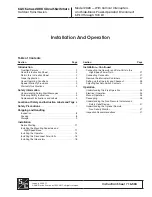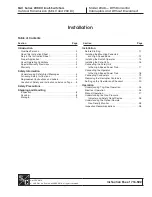
157
Figure 161 Port roles
MSTP calculation involves the following port roles:
•
Root
port
—Forwards data for a non-root bridge to the root bridge. The root bridge does not
have any root port.
•
Designated
port
—Forwards data to the downstream network segment or device.
•
Master
port
—Serves as a port on the shortest path from the local MST region to the common
root bridge. The master port is not always located on the regional root. It is a root port on the IST
or CIST and still a master port on the other MSTIs.
•
Alternate
port
—Serves as the backup port for a root port or master port. When the root port or
master port is blocked, the alternate port takes over.
•
Backup
port
—Serves as the backup port of a designated port. When the designated port is
invalid, the backup port becomes the new designated port. A loop occurs when two ports of the
same spanning tree device are connected, so the device blocks one of the ports. The blocked
port acts as the backup.
•
Boundary
port
—Connects an MST region to another MST region or to an STP/RSTP-running
device. In MSTP calculation, a boundary port's role on an MSTI is consistent with its role on the
CIST. But that is not true with master ports. A master port on MSTIs is a root port on the CIST.
Port states
In MSTP, a port can be in one of the following states:
•
Forwarding
—The port learns MAC addresses and forwards user traffic.
•
Learning
—The port learns MAC addresses but does not forward user traffic.
•
Discarding
—The port does not learn MAC addresses or forwards user traffic.
A port can have different port states in different MSTIs. A port state is not exclusively associated with
a port role.
lists the port states supported by each port role. (A check mark [
√
] indicates that
the port state is available for the corresponding port role, and a dash [—] indicates that the port state
is not available for the corresponding port role.)
Summary of Contents for FlexNetwork NJ5000
Page 12: ...x Index 440 ...
Page 39: ...27 Figure 16 Configuration complete ...
Page 67: ...55 Figure 47 Displaying the speed settings of ports ...
Page 78: ...66 Figure 59 Loopback test result ...
Page 158: ...146 Figure 156 Creating a static MAC address entry ...
Page 183: ...171 Figure 171 Configuring MSTP globally on Switch D ...
Page 243: ...231 Figure 237 IPv6 active route table ...
















































